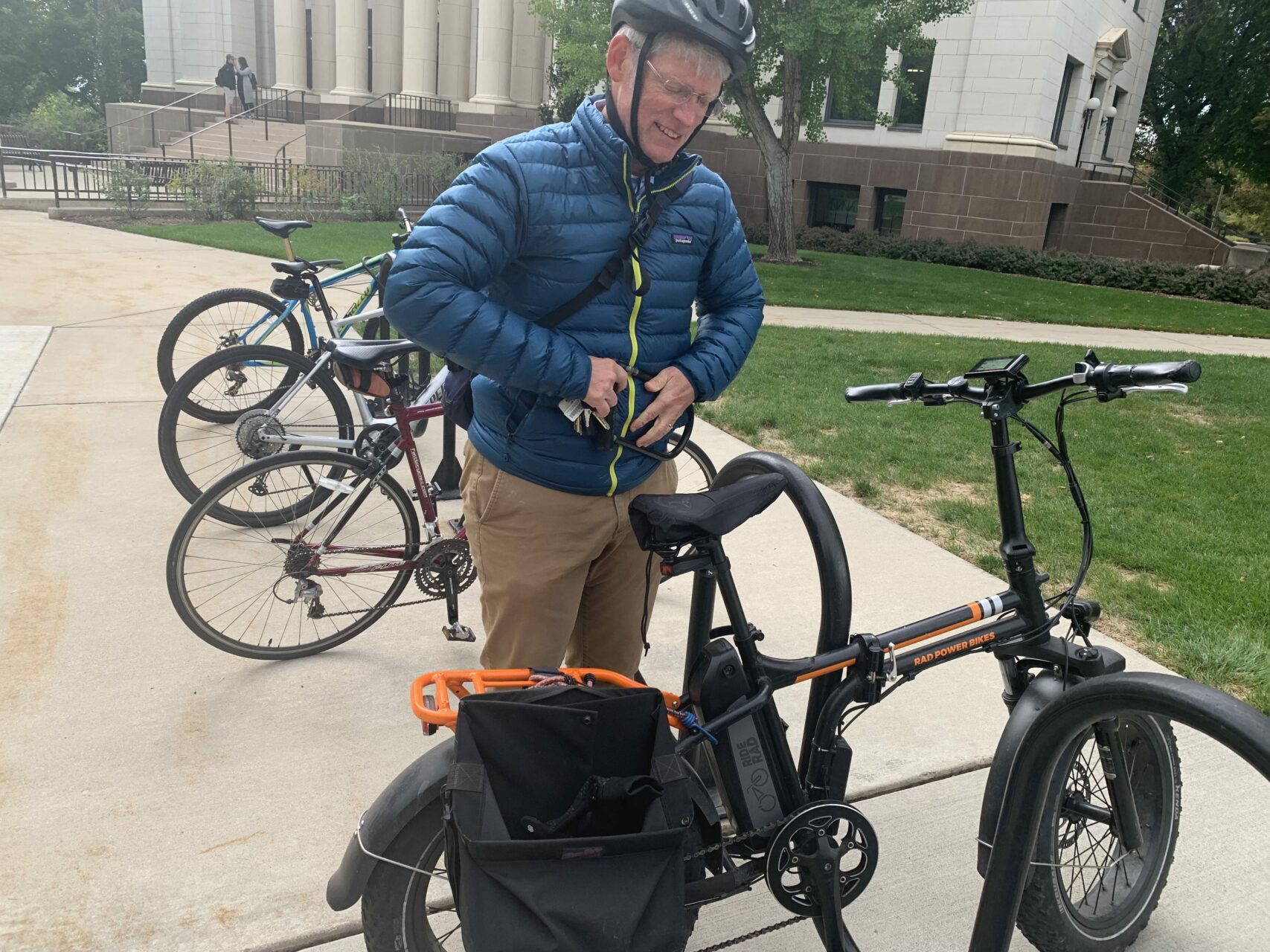
For decades, students and professors rode traditional bicycles to campus. With the recent surge in electric bike sales, electric transportation is becoming more prevalent at BYU.
E-bike sales boomed in 2020 because of the pandemic, but trends show that e-bike popularity is projected to increase. According to Markets and Markets, the e-bike market is projected to reach $79.7 billion by 2026 from $47 billion in 2021.
There are many different kinds of e-bikes, but most work in a similar way. In an e-bike there is a compact electric motor attached to the hub of the front or back wheel in most cases. Some motors sit in the middle of the bike on the frame.
Some bike shops, like JigaWatt Cycles in Provo, convert traditional bicycles into e-bikes.
According to the JigaWatt Cycles website, BYU mechanical engineering professor Myles Christensen opened JigaWatt Cycles in 2012, “with the goal of bringing affordable electric bicycles to those who have given up using bikes for whatever reason.”
The McElwee family purchased the business from Christensen in 2017 and upgraded the conversion process.
JigaWatt Cycles can convert almost any bike into an e-bike with base kits for the electric system starting at $600. “It’s cheaper if you have your own bike (to start),” Charles McElwee, owner of JigaWatt Cycles said.
McElwee advises prospective customers to research the different bike options, try out a few bikes to find what’s comfortable and then find the e-bike within their budget.
Purchasing an e-bike, McElwee said, is an economical way students can get around Provo and to campus.
“You’ll have no insurance, you can park right outside your building, you can take roads that cars can’t travel, it can be put on the bus and it’s cheaper than a car, unless you want to go on a date,” McElwee said.
Students trudge up the south campus hill each day to get to campus. But Micah Paulsen, 21, a sophomore majoring in exercise science, said he just “chills and kicks back” while riding his e-bike up the hill.
Paulsen rides a Jetson e-bike to campus, which is much smaller than other e-bikes and easy to store inside an apartment. “It’s better than a normal bike because I don’t have to do much, it’s more fun to have a little cruiser,” he said.
E-bikes are required to be registered like other bikes on campus and riders need to follow the BYU Bicycling policy. Professors are choosing to ride e-bikes around town and to campus like the students.
Journalism professor Miles Romney occasionally rides his bike to campus, but travels on his e-bike with his family any opportunity he gets. He totes around his 2-year-old twins in a trailer attached to his e-bike.
“(E-bikes have) opened up the world to us,” Romney said. “I can basically go wherever I want with that e-bike and not feel like I am a pioneer pulling a handcart, I can just zip wherever I want within the city.”
E-bikes have a throttle, pedal assist and larger wheels, making traveling around town and to campus a possibility year-round.
“I would tell anyone looking to get an e-bike that it’s pricey but worth every penny,” said Bailey Burden, a junior majoring in communications.




